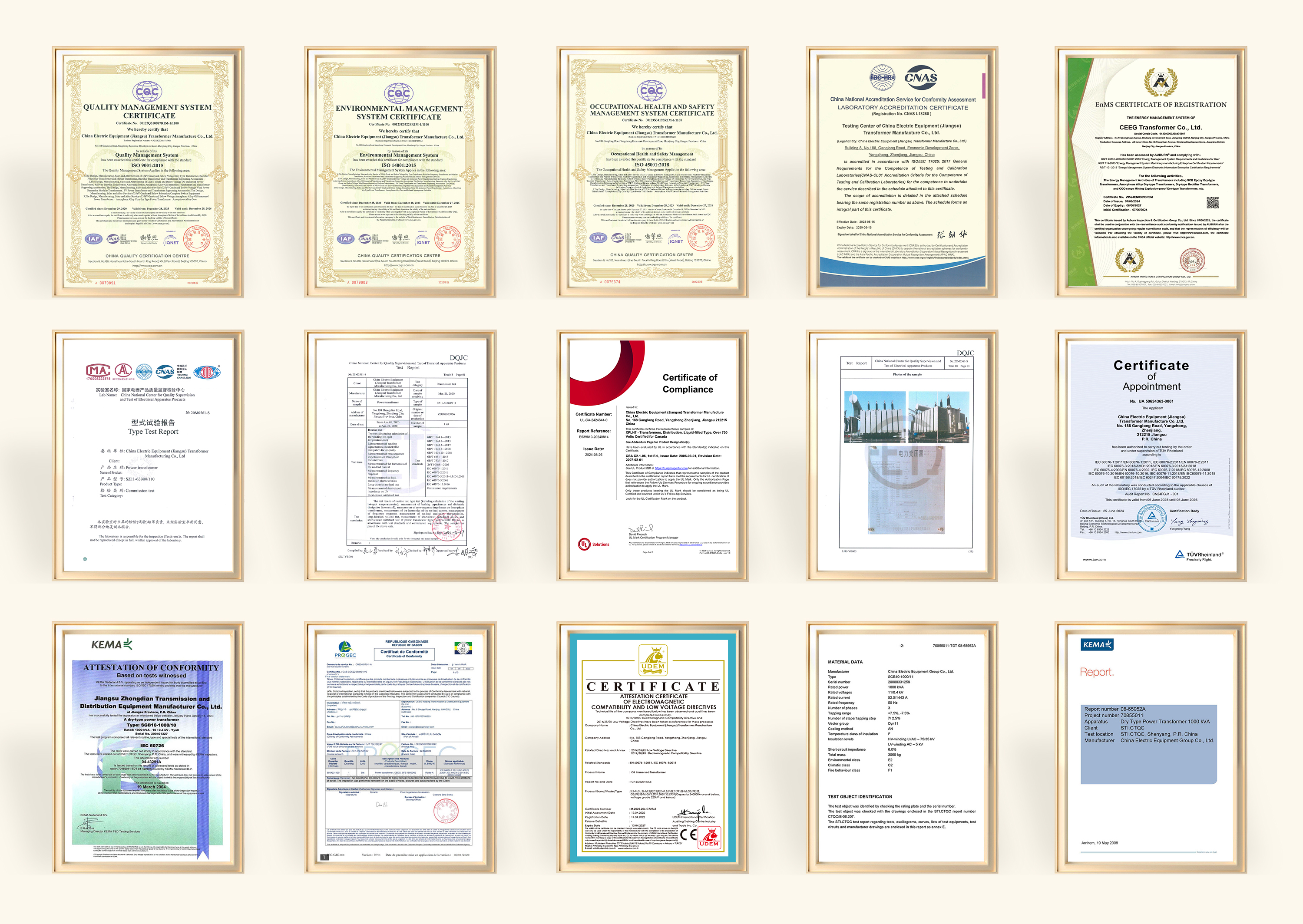-uako.jpg) CEEG has independently developed a new type of high-temperature resistant transformer that adopts a hybrid insulation structure. The hotspots within the device use DuPont's Nomex insulation material (Class C heat resistance) and mineral oil. This design truly meets the operational requirements of "high overload, safety, and reliability" throughout its lifecycle. This product is an excellent choice for users with particularly high transformer requirements or those seeking upgrades and expansions (possible on the basis of existing transformers).
CEEG has independently developed a new type of high-temperature resistant transformer that adopts a hybrid insulation structure. The hotspots within the device use DuPont's Nomex insulation material (Class C heat resistance) and mineral oil. This design truly meets the operational requirements of "high overload, safety, and reliability" throughout its lifecycle. This product is an excellent choice for users with particularly high transformer requirements or those seeking upgrades and expansions (possible on the basis of existing transformers).
Performance Characteristics:
1. Low Loss
No-load loss is reduced by more than 10% compared to the current national standard GB6451-2015, and load loss is reduced by more than 5% compared to the current national standard GB6451-2015. The performance complies with the GB20052-2020 energy efficiency standard.
2. Low Noise
The self-cooling noise level is below 60dB, nearly 20dB lower than the national standard. For users with special requirements, ultra-low noise transformers can be customized.
3. Low Partial Discharge
For 110kV production tasks, the company introduces a modern enterprise management model. The entire process for 110kV products will be conducted in a dust-free environment. All metal parts and insulation parts inside the transformer are rounded, and the partial discharge level is controlled below 100pc.
4. Strong Short-Circuit Resistance
The 110kV transformer is nationally certified, ensuring no damage due to sudden short circuits, with extremely high reliability.
5. Aesthetic Appearance
Fully polished and rust-removed, with powder electrostatic spraying achieving household appliance paint effect. Wide strip radiators are used, which are not prone to fading.
6. Leak-Proof
All seals are made of acrylate material and adopt one-time molding technology, ensuring no interfaces. The company solemnly promises no leakage. Fluorescence, positive pressure, and negative pressure leak tests are employed.
Application Scenarios:
The transformer is beneficial for peak summer loads. It is suitable for main power grids with high load rates under high temperatures, as well as places with impact loads and continuous overload requirements, such as steel, metallurgy industries, railway transportation, power plants, and hydropower stations.
-erfr.jpg)






.jpg)

.jpg!webp)